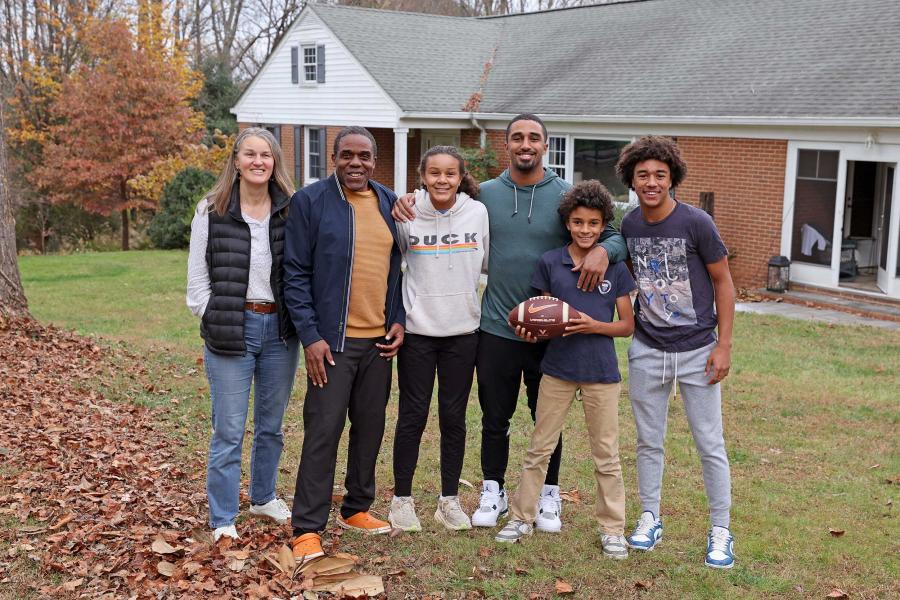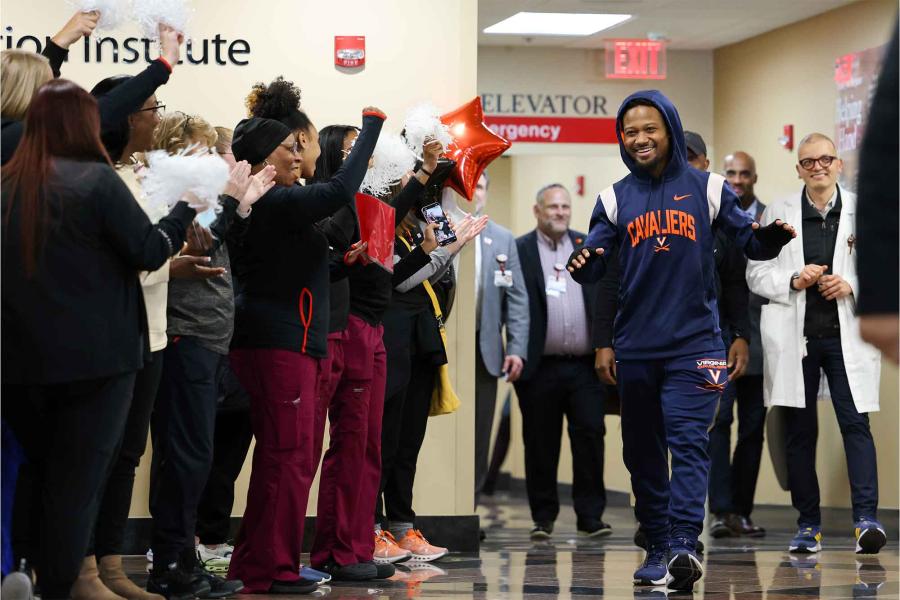Editor's Note: Perris Jones’ story has added another incredible chapter. This fall, the two-time UVA graduate will begin pursuit of his doctorate in educational leadership and organizational development at none other than the University of Louisville.
How a Life-Altering Football Injury Launched Perris Jones’ Next Chapter
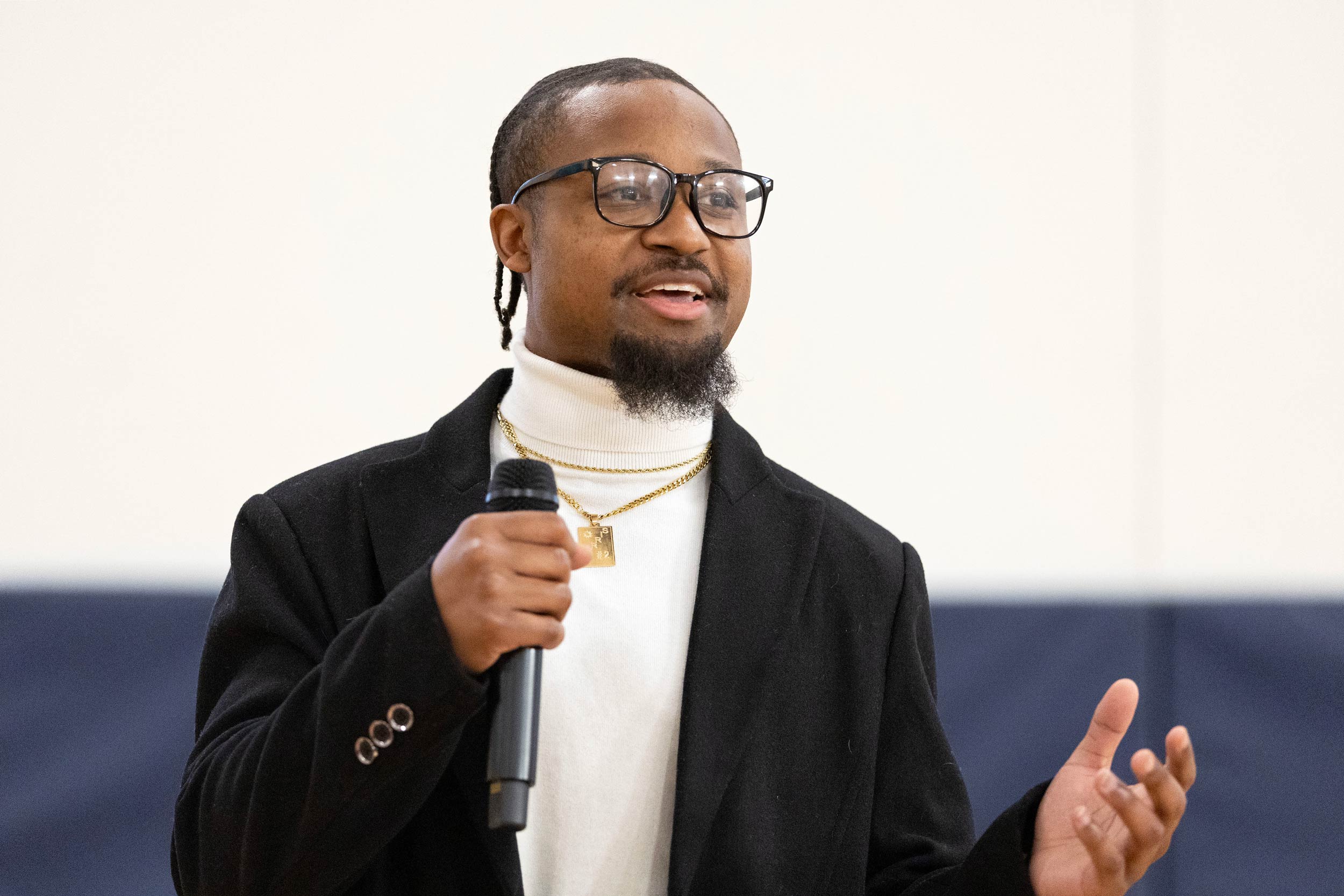
After a spinal injury ended his football career, Perris Jones is pursuing a new purpose in his life through motivational speaking. (Photo by Ryan Kelly)
Trending
There’s the chaos of being rushed to the hospital for emergency spine surgery, and then there’s the eerie calm of a hospital room late at night. Perris Jones lived temporarily in the silence following the injury that ended his football career.
Before catching a short pass late in the third quarter of the University of Virginia’s game at the University of Louisville on Nov. 9, 2023, Jones was a starting running back, a team captain and a student-athlete who aspired to play his sport professionally. He saw a shot at the NFL in his near future and, if the stars aligned, a big enough contract to someday buy his mother a house.
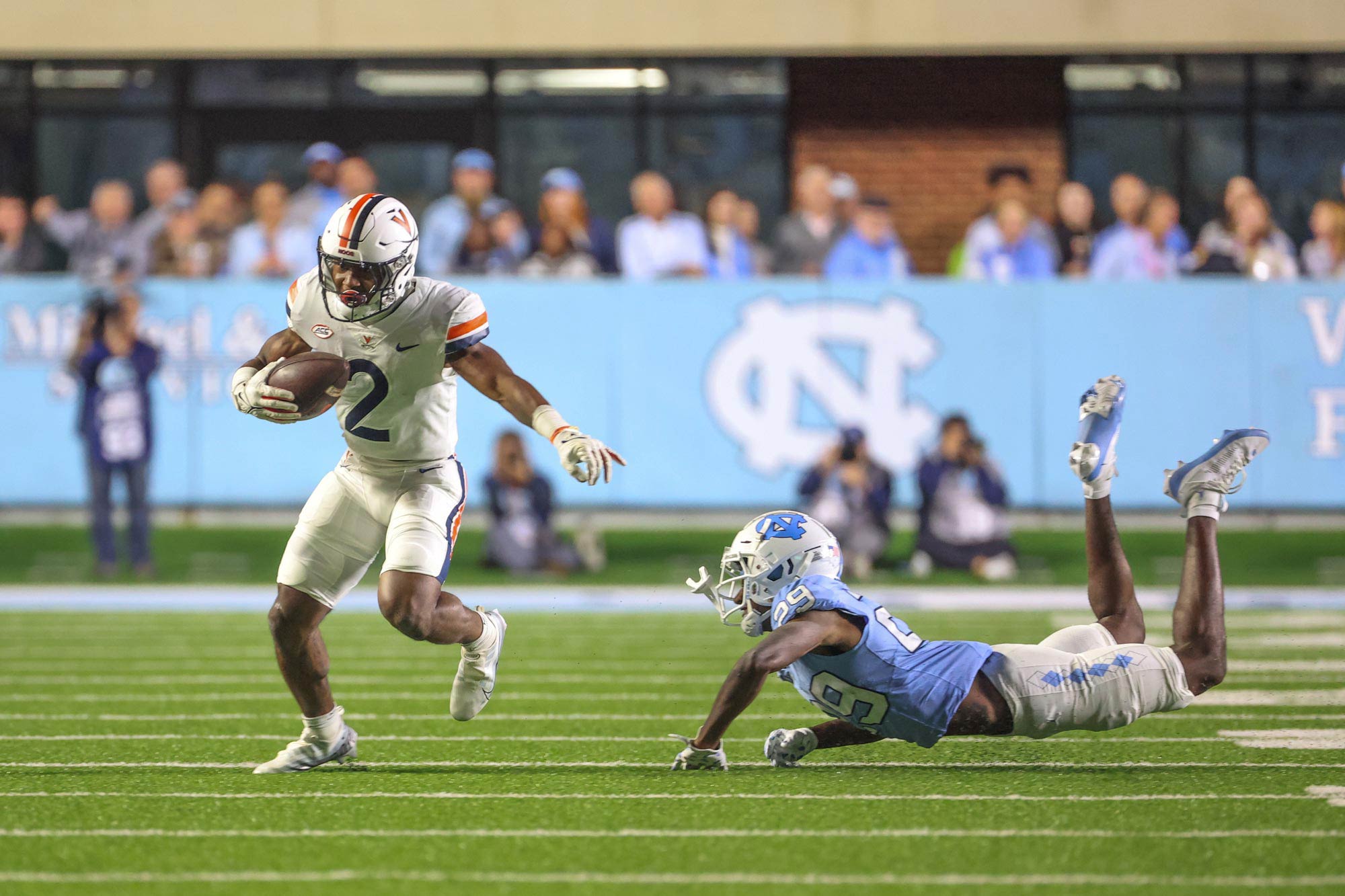
A former walk-on running back, Jones eventually earned a scholarship at UVA and became a team captain. He ran for more than 750 yards over his final two seasons with the Cavaliers. (UVA Athletics photo)
In an instant, however, reality struck, and an identity needed redefining.
“Who am I now that I can’t move?” Jones thought to himself from his empty room at the University of Louisville Medical Center. “Who am I now that I can’t pick up a football anymore?”
It’s been 13 months since Jones took that crushing blow from a Louisville defender and laid motionless on the L&N Stadium field. His immediate recovery was remarkable and well-documented. Jones walked out of U of L’s Frazier Rehabilitation Institute less than three weeks after surgery to diffuse a spinal cord contusion.
It’s his long-term recovery and the move to the next chapter of his life that’s been less publicized.
Who is Perris Jones now? He carries a microphone and spreads a heck of a message.
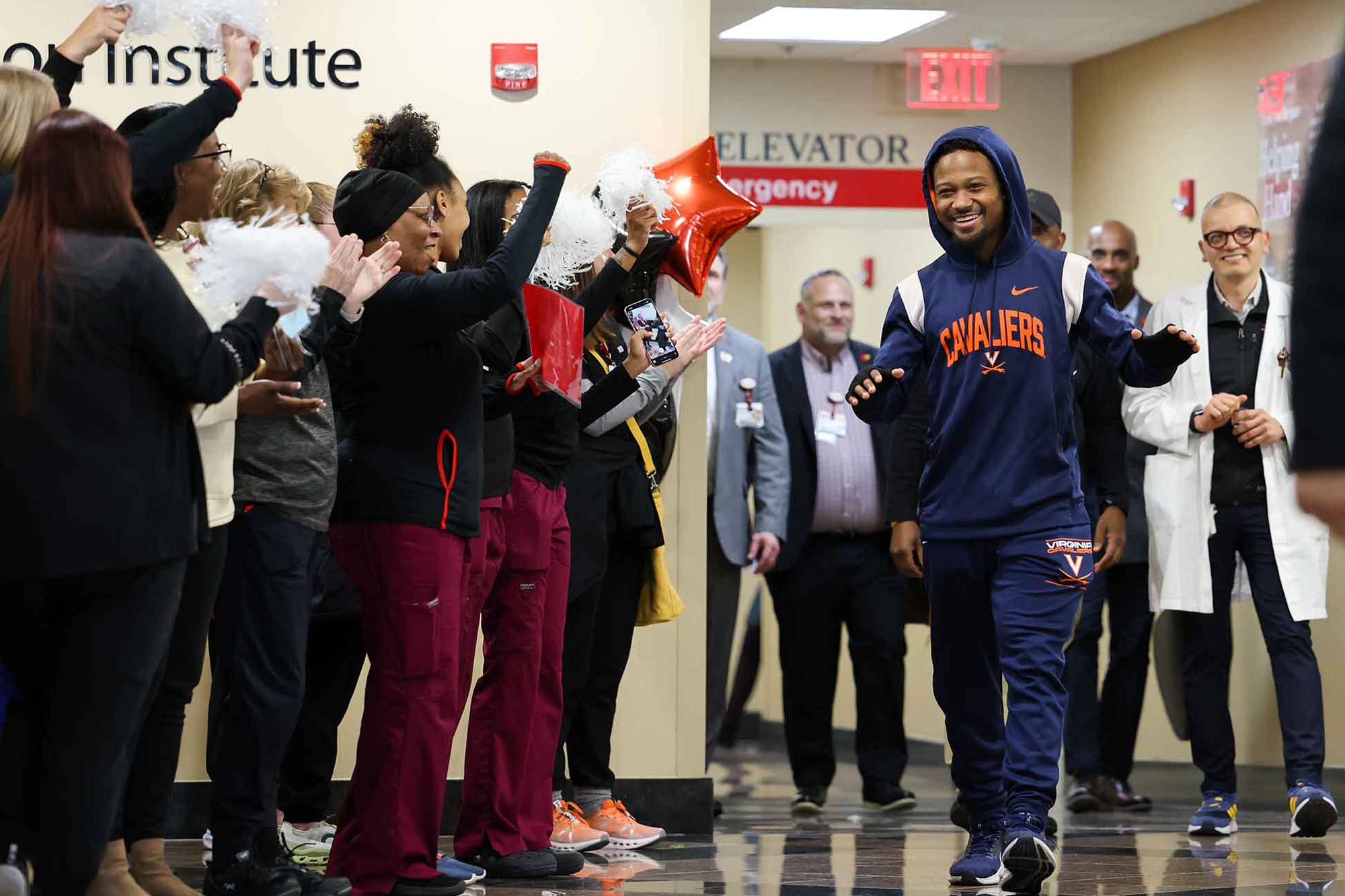
Less than three weeks after emergency spine surgery, Jones walked out of the Frazier Rehabilitation Institute in Louisville. (U of L Health photo)
At the suggestion of the doctors, nurses, friends and family members who listened to him while on bed rest in Kentucky, Jones left the hospital with a new ambition.
“All I had was time,” Jones said with a grin. “We talked about everything. Eventually, they were like, ‘Yo, you need to tell your story.’”
Jones, 26, is a two-time UVA graduate after completing his master’s degree in educational psychology in May. For a day job, he works in an IT role for ManTech International, a defense contracting firm. On the side, he’s a motivational speaker.
Jones’ testimony has now been shared with audiences ranging from high schoolers to business leaders. Earlier this month at a Richmond community center, he spoke to members of Saving Our Youth, a nonprofit organization and after-school program helping underserved teenagers transition to adulthood.
He delivered an eloquent 23-minute presentation that was both revealing – at age 6, Jones grabbed a knife to defend his mother against an abusive boyfriend – and inspiring – at UVA, Jones went from a walk-on player to a team captain.
The speech began, though, with a question Jones asked himself in the hospital.
“Who are you?” Jones said to the crowd. “I don’t want you to think about anything materialistic. With the utmost respect, I don’t care what position you hold, what title you hold. Like, who are you intrinsically? Your intrinsic values.”
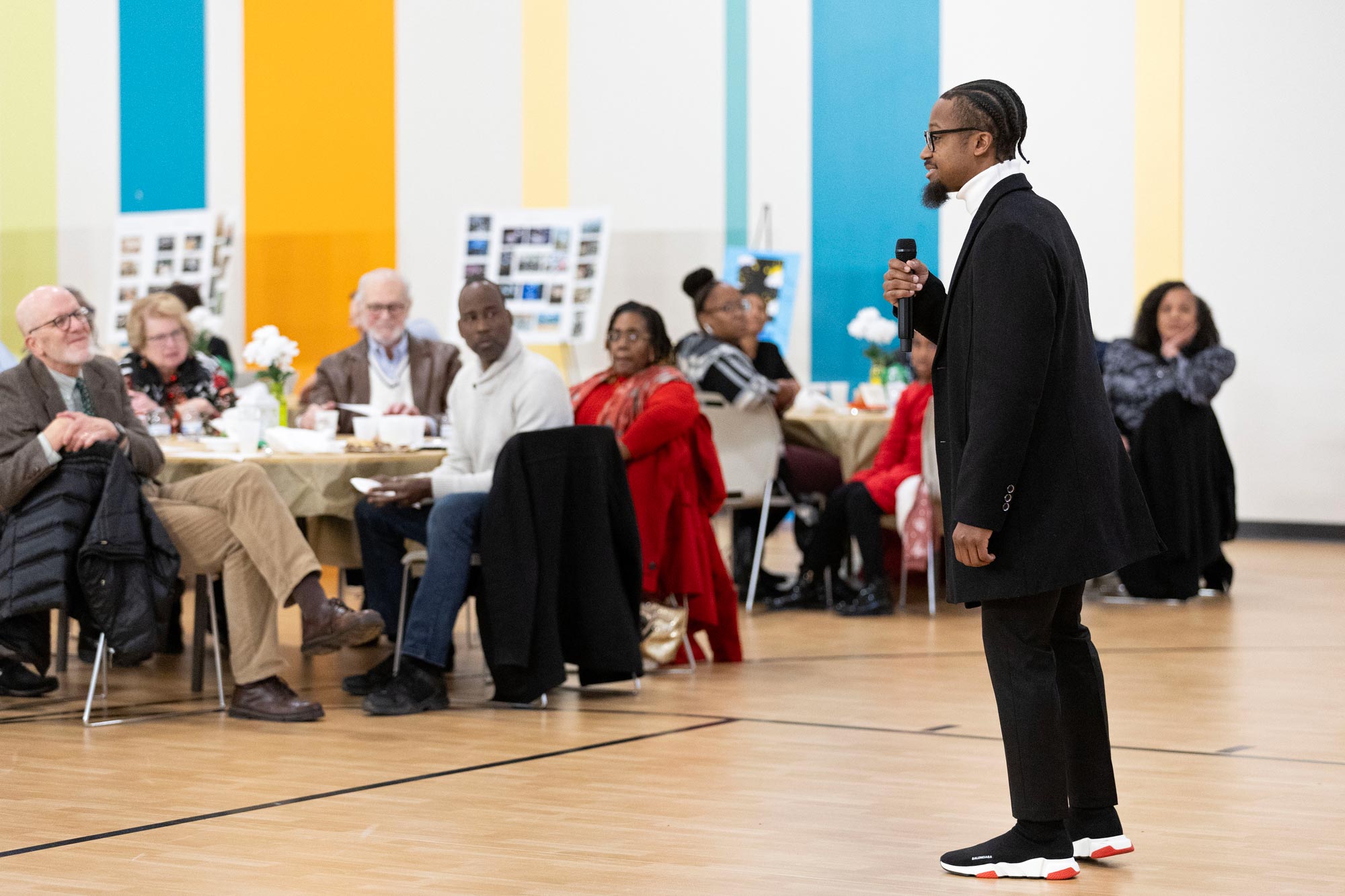
Over the last year, Jones has shared his testimony in front of a range of audiences. Earlier this month, he was the keynote speaker at an event for a nonprofit organization in Richmond. (Photo by Ryan Kelly)
Jones, with his NFL dreams behind him, looked inward in that hospital bed and concluded he was still a “selfless person” and a “genuine guy” and that he “didn’t need to be able to move to be that. I didn’t need to add anything. I just had to open my eyes and be who I am.”
That’s someone who survived a house fire as a child. That’s someone who, despite a skinny 5-foot-7 frame, drew the attention of an Atlantic Coast Conference football program out of high school. That’s someone who, when he finally got his first start as a fifth-year college player, ran for more than 100 yards.
That’s also someone who’s dealt with the tragedy of losing three teammates – Devin Chandler, Lavel Davis and D’Sean Perry – to a shooting, and having another, his roommate Mike Hollins, wounded in the same ordeal.
By the time Jones suffered his life-altering injury, he had already built up the strength and resilience to overcome anything.
“Something I realized on my journey is that sometimes it’s not about achieving the goal,” Jones said of the NFL. “Sometimes it’s about who you become while you’re chasing it. That’s the important piece.
“I want you to consider that as you walk through your lives.”
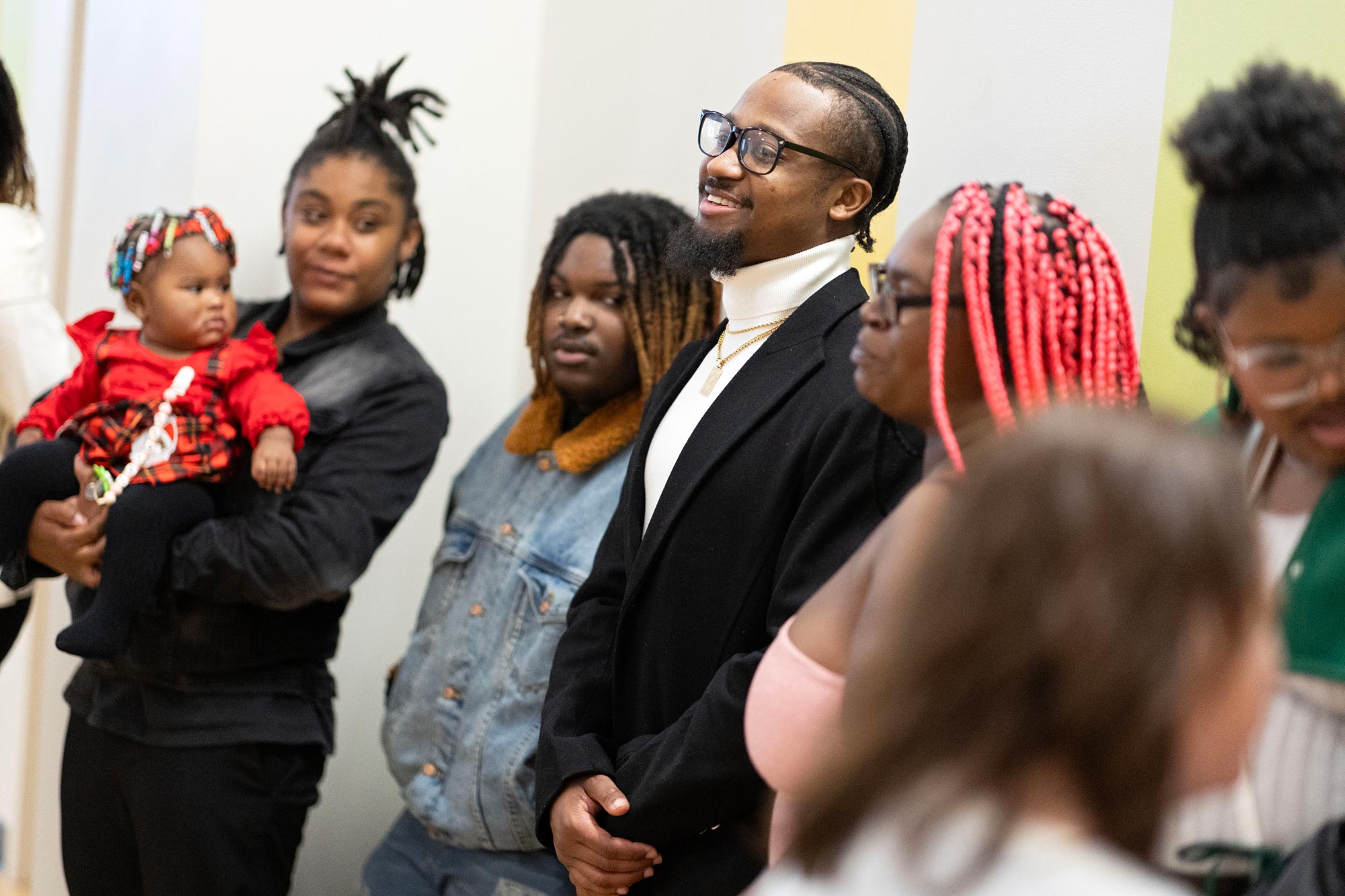
After his speech, Jones took time to meet with the teenagers involved with Saving Our Youth. High school senior Ace Simms, in the jean jacket, said he was inspired by Jones’ words and made sure to get his contact information. (Photo by Ryan Kelly)
The message resonated throughout an audience that included 18-year-old Ace Simms, a senior at John Marshall High School in Richmond and aspiring rap artist who performed his original music earlier in the evening.
Simms and Jones exchanged contact information after his speech.
“He gave me the motivation to keep going,” Simms said. “I was amazed by the fact that he was able to just go through the obstacles without letting them knock him down or make him give up.”
Jones has plans to start his own nonprofit organization and call it “No Stars,” a nod to his lack of heavy recruitment as a high school athlete.
“I want to help unheralded kids and get them to where they need to be,” he said.
Jo White, Saving Our Youth’s founder and executive director, has no doubt Jones can lead such an endeavor. All she needed was to hear him speak for 23 minutes.
“We try to get young speakers that can talk to our kids’ spirits, their souls,” White said. “So that when they talk to them, they can hear it and it’s not over their head.
“And that’s what exactly what Perris did. What an amazing message.”
Media Contacts
University News Senior Associate University Communications
fpa5up@virginia.edu (434) 924-6856







